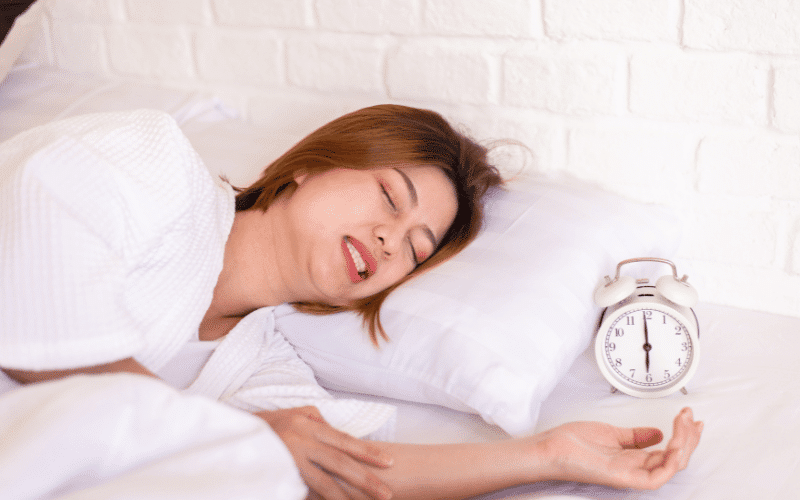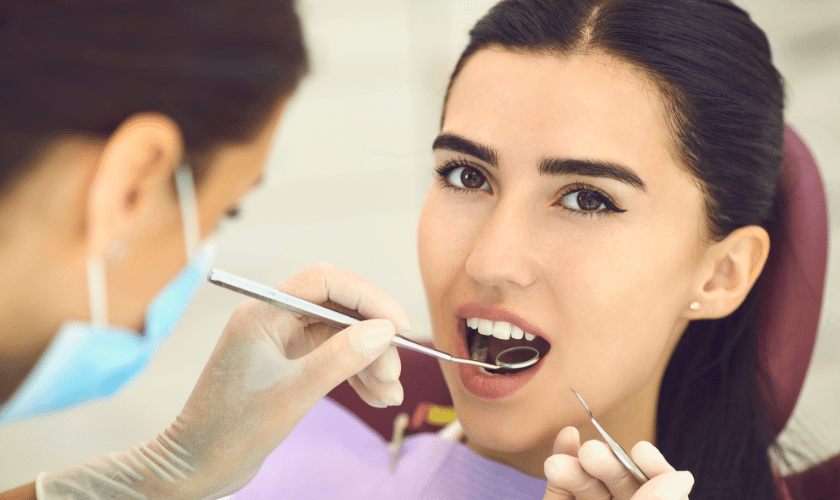908-282-3366
Is Teeth Grinding A Symptom Of Anything?

The grinding of teeth, also known as bruxism, is a surprisingly common condition. You might clench your jaw unconsciously during sleep (sleep bruxism) or while awake (awake bruxism), leaving you with a sore jaw, headaches, and even damaged teeth. But why do we grind our teeth? Is it just a bad habit or a symptom of something more? All these dilemmas regarding the dental expedition will be cleared in today’s blog.
The Causes of Teeth Grinding
The causes of teeth grinding are shrouded in mystery and uncertainty, yet the consequences of this seemingly harmless habit can be truly catastrophic. A highly professional dentist in Hillsborough can provide insight & solutions to mitigate these potential risks. It can arise from various factors, both physical and psychological. Here’s a breakdown of some common culprits:
- Stress & Anxiety: Stress is a major contributor to bruxism, particularly awake bruxism. When feeling overwhelmed or anxious, you might subconsciously tighten your jaw or grind your teeth as a way to manage tension.
- Sleep Disorders: Sleep apnea, a condition where breathing is interrupted during sleep, can disrupt sleep patterns and lead to bruxism. Additionally, restless sleep or teeth misalignment can also contribute to sleep bruxism.
- Medications: Certain medications, including antidepressants and some ADHD medications, can list teeth grinding as a potential side effect.
- Medical Conditions: Some neurological disorders like Parkinson’s disease or Huntington’s disease can cause involuntary movements, including teeth grinding.
- Misaligned Bite: A misaligned bite, where your upper and lower teeth do not align correctly, can strain your jaw muscles and contribute to teeth grinding.
- Habitual Behavior: In some cases, It can become a habitual behavior, especially if it starts during childhood and continues into adulthood.
Recognizing The Signs and Symptoms:
While you might not always be aware of teeth grinding, there are some telltale signs to watch out for:
- Morning Headaches: Frequent headaches, particularly upon waking, can be a sign of nighttime bruxism.
- Jaw Pain and Tenderness: Soreness or tightness in the jaw muscles is a common symptom of teeth grinding.
- Earaches: It can sometimes cause referred pain, leading to earaches.
- Worn or Chipped Teeth: With time, It can erode tooth enamel and potentially result in tooth chips.
- Increased Tooth Sensitivity: It can expose the dentin layer beneath the enamel, leading to sensitivity to hot or cold. Visiting a trusted dentist in Hillsborough is highly recommended as he/she can provide treatment options to alleviate increased tooth sensitivity caused by teeth grinding, ensuring your dental health remains comfortable and intact.
Taking Action: Solutions for Teeth Grinding
If you suspect you grind your teeth, here are some steps you can take:
- Stress Management: Engaging in healthy stress management techniques, such as regular exercise, relaxation techniques, or therapy, can significantly reduce bruxism.
- Sleep Hygiene: Practicing good sleep hygiene habits, like embracing a consistent sleep schedule and incorporating a relaxing bedtime routine, boosts sleep quality and potentially alleviates sleep bruxism.
- Mouthguard: Your dentist can fit you with a custom-made mouthguard, a soft plastic appliance worn at night to protect your teeth from grinding.
- Managing Root Causes: If a medical condition is influencing bruxism, addressing that underlying condition with your doctor can be helpful.
- Dental Treatments: For severe cases of teeth grinding, your dentist might recommend dental treatments like bite adjustments or dental crowns to improve bite function.
Overall, It can be disruptive and damaging. However, understanding the potential causes and available solutions empowers you to take control. By managing stress, improving sleep habits, and consulting with your dentist in Hillsborough, you can break the grinding habit and enjoy a healthier, more comfortable smile.
5 Trending FAQs on Teeth Grinding!
1. Is teeth grinding bad for you?
A. Chronic teeth grinding can damage teeth, cause jaw pain, and lead to headaches. Early intervention can help prevent these complications.
2. Can teeth grinding be cured?
A. There isn’t a permanent cure for bruxism, but management strategies like mouthguards and stress reduction techniques can significantly reduce its impact.
3. Do children grind their teeth?
A. Yes, This is common in children and often goes away on its own. However, if it persists or is severe, consult a dentist.
4. What foods can worsen teeth grinding?
A. Caffeine and alcohol can act as stimulants and potentially worsen bruxism.
5. Can I stop teeth grinding on my own?
A. Stress management techniques and relaxation exercises can help reduce teeth grinding for some people. However, a dentist’s consultation is crucial for diagnosis and personalized treatment plans.


